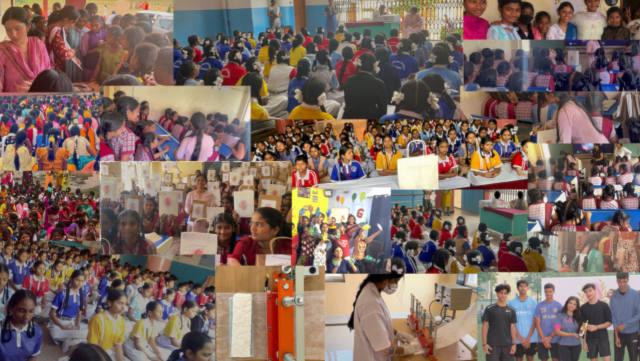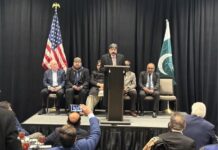(Isstories Editorial):- Hyderabad, Telangana Oct 27, 2025 (Issuewire.com) – Anwitha Srivatsa Navuluri, a 17-year-old student from Hyderabad, has founded PadSeva, a student-led nonprofit organization focused on improving menstrual health awareness and access in underserved rural communities across India. The initiative emphasizes distributing biodegradable bamboo sanitary pads, conducting awareness workshops, and producing educational materials to help reduce the stigma surrounding menstruation.
The idea for PadSeva was born in 2023, when Anwitha was researching health and hygiene challenges in rural areas for a school project. She was struck by the widespread lack of access to basic menstrual products and reliable information. While larger NGOs existed in the space, she noticed a gap: few platforms allowed students to meaningfully contribute to long-term, sustainable, community-based solutions. This realization led to the creation of PadSeva.
Since its inception, PadSeva has reached over 9,500 women across multiple villages in Andhra Pradesh and Telangana. The team has helped manufacture and distribute 8,500 biodegradable bamboo pads, which are locally produced and designed to decompose naturally. These efforts are driven by a team of 30 dedicated student volunteers, many of whom are high schoolers from Hyderabad.
More on Isstories:
- Comparing China’s Track Undercarriage Suppliers: Why Choose Yijiang Machinery
- Complete Buyer’s Guide to China OEM Undercarriage Solutions by Yijiang Machinery
- Top 10 Bearing Manufacturers in China
- Best OEM Luxury Mechanical Watches For Men/Women Vendor: KODA’s Manufacturing Excellence At Canton Fair
- EDM Material Guide Expert Tips on Electrodes and Workpieces
Entirely student-run, PadSeva handles everything from field logistics and communications to design and fundraising. So far, the organization has raised over $6,500 through individual donations, school fundraisers, and small grants. These funds directly support pad production, educational material printing, and workshop facilitation.
The organization’s workshops address topics such as menstrual hygiene, bodily autonomy, and myths surrounding menstruation. Sessions are conducted in local languages with the support of grassroots facilitators and community health workers. PadSeva also produces infographics and visual guides–designed by student volunteers–which are distributed at the end of each session.
Beyond its fieldwork, PadSeva launches monthly newsletters and has begun a podcast series featuring students, educators, doctors, and activists who discuss menstrual health from diverse perspectives. “A lot of what we do at PadSeva isn’t just for rural communities,” says Anwitha. “We’re also trying to open up the conversation among urban students–many of whom have access but lack the awareness that it’s necessary to talk about menstruation openly”.
Looking ahead, PadSeva is planning its next round of workshops in Telangana and is exploring partnerships to expand its biodegradable bamboo pad supply without increasing production costs. The team is also developing PadsOnWheels, a mobile menstruation campaign to bring awareness and supplies to remote areas across southern India.
PadSeva welcomes all forms of support. To contribute or collaborate, please contact: [email protected].

This article was originally published by IssueWire. Read the original article here.


















